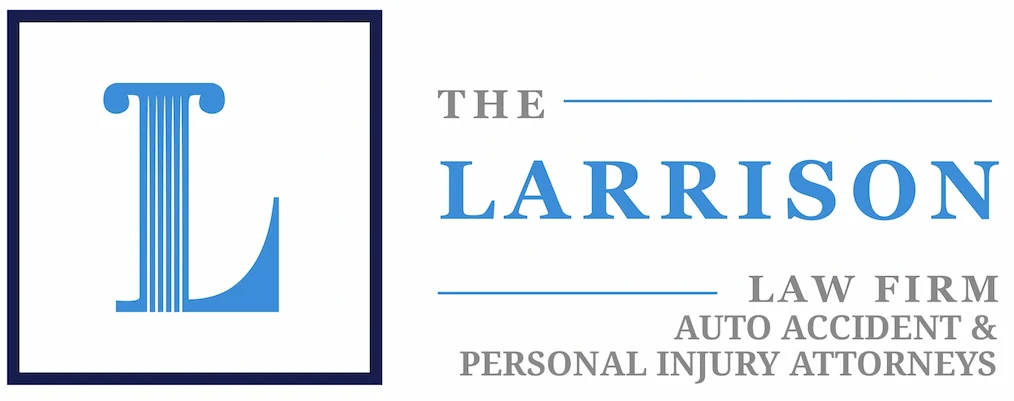A serious accident can change your entire life in the matter of a few moments. You could be left so badly injured by a car wreck, a fall, or another accident that you need to take a significant amount of time off from work. In some cases, a severe injury may leave you with reduced earning capacity over the long term. In Georgia, injured victims have the right to pursue compensation for the full value of their economic damages. That includes both loss of wages and loss of earning power. At The Larrison Law Firm, we are proud to be on the side of injured victims. Here, our Athens personal injury lawyer provides a guide to loss of earning capacity in Georgia.
You Have the Right to Seek Full and Fair Financial Compensation After an Accident
Following an accident in Athens or elsewhere in Georgia, you need financial compensation to pay your bills and support your family. State law gives you the right to be made “whole.” In other words, you have the right to seek full and fair financial compensation after an accident.
If another party’s negligence caused your injuries (car crash, slip and fall accident, etc), you can pursue a personal injury claim for damages. Among other things, your settlement or verdict may include compensation for medical bills, lost wages, and pain and suffering. Insurance companies may try to limit payouts, but you are not required to accept a lowball offer.
Understanding Lost Income as a Personal Injury Remedy in Georgia
In Georgia, injured victims have the right to pursue compensation for the financial harm caused by an accident, including lost income. Lost income is a broad category that covers both wages already missed and the projected loss of future earnings due to a lasting disability or diminished work ability. These damages are not automatic: You must prove them with strong support. There are two broad categories of “lost income” as a personal injury remedy in Georgia:
- Lost Wages: Lost wages are income that you did not earn because you had to miss work during your recovery. Among other things, they include time missed for hospital stays, doctor visits, physical therapy, or simply being too injured to perform your job. In Georgia, you can calculate lost wages using recent pay stubs, employer statements, or tax returns. Hourly workers, salaried employees, gig workers, and even self-employed individuals can all claim lost wages if supported by sufficient documentation. You do not need to be out of work for an extended period: Any missed income tied directly to the accident may be recoverable.
- Loss of Earning Capacity: For those who suffered a very serious injury and/or have permanent physical or mental impairments, additional compensation for income loss may be available in the form of loss of earning capacity. Loss of earning capacity is a future-looking claim that compensates you for reduced ability to earn a living due to permanent or long-term injury. It applies when your injuries prevent you from returning to your previous job or limit your potential for promotions and higher earnings. Georgia courts typically require expert testimony, such as from a vocational rehabilitation specialist or an economist, to establish the projected financial loss. Unlike lost wages, this aspect of your personal injury claim involves some degree of speculation and projection. It is complicated.
The Bottom Line: Through a personal injury claim in Georgia, you have the right to seek compensation for income that you did not earn and will not be able to earn because of your injuries.
Wage loss compensation is for the income you have already missed out on. Loss of earning capacity compensation is for the potential income that you will miss out on in the future.
Suing for Loss of Potential Income: How to Prove Loss of Earning Capacity
Evidence is the key to a successful personal injury claim in Georgia. Not only do you need to be prepared to prove that the defendant bears legal liability for your accident, but you will also be required to prove the existence of and the extent of your damages. Proving loss of earning capacity can be especially challenging. You need an Athens personal injury lawyer who can help you gather, organize, and prepare all relevant evidence. Key evidence that can help you sue for loss of potential income in Georgia includes:
- Medical Records and Expert Testimony: Medical records are always at the foundation of a strong personal injury claim. You must show that your injury permanently limits your physical or mental ability to work. Medical records, evaluations, and testimony from treating physicians or independent medical experts help establish the extent and permanence of your injuries/impairments.
- Employment and Income History: Your pre-accident earnings matter. Pay stubs, tax returns, and letters from past employers help prove your historical earnings and career trajectory. It is all documentation that helps to show what you would have likely earned had the accident not occurred. That is key in establishing how much you have lost in future income.
- Vocational Expert Analysis: A vocational expert evaluates how your injuries affect your ability to perform specific types of jobs. They compare your pre- and post-injury job skills, work history, and qualifications to determine what work, if any, you can now perform. Their report can be compelling evidence to demonstrate a reduced earning capacity.
- Economic Expert Calculations: An economist can project your lost future income by considering your previous earnings, career path, inflation, and life expectancy. They may calculate the difference between your pre-injury earning potential and your post-injury projected income. These numbers help quantify the full financial impact of your loss.
Be Proactive: Two-Year Statute of Limitations for Loss of Earning Capacity Claims
In Georgia, personal injury claims are time-sensitive. Under state law (Georgia Code § 9-3-33), you have two years to file a lawsuit for a personal injury case. Any claim that you have for loss of earning capacity for an accident must be initiated within two years. If you fail to bring your claim in a timely manner, you could lose out on the right to recover compensation at all. In other words, you may not be in a position to get financial compensation for your loss of earning capacity and related damages.
How Our Georgia Personal Injury Attorney Can Help
Personal injury claims are complicated. It is normal to have many questions about your rights, your interests, and what exactly you need to do to hold the insurance company accountable. A proactive approach is the right approach. You do not have to figure out everything on your own. At The Larrison Law Firm, we are always prepared to go the extra mile for accident victims in Georgia. With a proven record of successful case results, our firm has a history of six and seven-figure settlements and verdicts. Your initial consultation with our top-rated Athens personal injury lawyer provides free, confidential, and no-obligation consultations.
Contact Our Athens, GA Personal Injury Lawyer for a Free Case Review
At The Larrison Law Firm, our Athens personal injury attorney is standing by, ready to help you determine the best path forward. If you have any questions about loss of earning capacity in a personal injury case, please call us now or contact us online to set up your free, no-obligation initial appointment.




